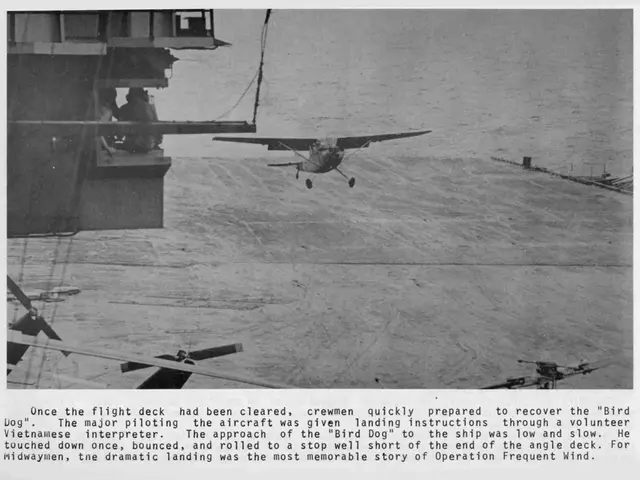Sea Theft: Unnoticed Capture of Estonian Oceanic Research Device by Russian Forces
A smart wave buoy developed by Tallinn University of Technology (TalTech) mysteriously vanished from Estonia's exclusive economic zone in the Baltic Sea and reappeared in a Russian military base, highlighting concerns about the nation's limited maritime awareness and raising urgent questions about security in the region.
The incident, which took place without a single alarm, involved TalTech's Institute of Marine Systems' buoy, deployed near Hiiumaa in late April. The device, named LainePoiss (WaveBoy), began behaving erratically, suggesting it was not a storm or technical failure. Upon analyzing hydrometeorological data, GPS signals, satellite imagery, and other sources, it became clear the buoy was being intentionally guided towards Kaliningrad, where it lost satellite connection.
The buoy, designed to collect wave data from the Baltic Sea, is crucial for real-time environmental monitoring and safe navigation. Its removal raises concerns about national response, security, and navigational safety. Moreover, it underscores Estonia's limited maritime awareness, as the device was taken from its economic waters and brought to a Russian military site.
Rivo Uiboupin, the director of TalTech's Institute of Marine Systems, described the incident as a reminder of the need for stronger support and systemic development of marine monitoring and forecasting services in Estonia. This lack of awareness in the Baltic Sea, according to Uiboupin, has allowed strange occurrences, such as gas pipeline malfunctions, communication cable damage, and targeted removal of oceanographic measuring devices, to continue unabated.
Uiboupin emphasized that science-based marine monitoring and forecasting services are integral to Estonia's strategic preparedness, ensuring both natural science research and national security intersect effectively. TalTech plans to install a new buoy in the same location soon, implementing measures to ensure continuous satellite transmission and prevent unauthorized shutdowns.
Though the stolen buoy did not contain sensitive information, several weeks' worth of raw data were lost, which had been intended for research and development of marine forecasting services. Uiboupin reiterated the importance of improving Estonia's maritime awareness to avoid such losses and prepare for environmental pollution, navigation hazards, and other emergencies.
The incident also underscores the need for more competent specialists able to quickly interpret data from various sources, make forecasts, and draw conclusions that support decision-making and rapid response. A digital tool integrating real-time marine data, satellite images, and model forecasts, similar to a digital twin of maritime awareness, would be beneficial to effectively respond to a wide range of emergencies.
Estonia can enhance its maritime situational awareness and security by implementing strategies such as increasing the deployment of advanced monitoring devices like smart wave buoys and underwater sensors, utilizing autonomous vessels and drones for more efficient data collection, and leveraging AI-driven systems for effective data analysis. Strengthening partnerships with universities like TalTech to develop cutting-edge analytical tools and developing human capital, including training the next generation of marine data analysts, are also essential.
- Rivo Uiboupin, the director of Tallinn University of Technology's Institute of Marine Systems, has called for stronger support and systemic development of marine monitoring and forecasting services in Estonia, citing the recent disappearance and reappearance of their smart wave buoy, LainePoiss, in Russia, as a reminder of the need for such measures.
- Science-based marine monitoring and forecasting services are integral to Estonia's strategic preparedness, according to Uiboupin, as they ensure the effective intersection of natural science research and national security.
- With the loss of several weeks' worth of raw data from the stolen buoy intended for research and development of marine forecasting services, Uiboupin reiterated the importance of improving Estonia's maritime awareness to avoid such losses and prepare for environmental pollution, navigation hazards, and other emergencies.
- To enhance its maritime situational awareness and security, Estonia can implement strategies such as increasing the deployment of advanced monitoring devices like smart wave buoys and underwater sensors, utilizing autonomous vessels and drones for more efficient data collection, and leveraging AI-driven systems for effective data analysis.
- Developing human capital, including training the next generation of marine data analysts, and strengthening partnerships with universities like Tallinn University of Technology to develop cutting-edge analytical tools are also essential for Estonia to improve its maritime security and respond effectively to a wide range of emergencies.








